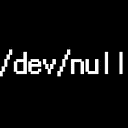Summary,
I am submitting this report to bring to your attention an issue in the code provided in the Python script file named “script.py”. The code appears to have a few errors that need to be addressed. The purpose of this code is to extract the shellcode from a given executable file and generate a header file containing the shellcode for use in a C or C++ program.
The issues with the code are as follows:
- In line 4, the
DUMMY_FUNCvariable is defined as a string containing hexadecimal values. However, since the code is in Python 3.x, the variable should be defined as a bytes object by prefixing the string withb. - In line 8, the print statement is not compatible with Python 3.x, and requires parentheses around the string.
- In line 11, the
text_sectionvariable is defined as an empty string, but it should be defined as an empty bytes object. - In line 13, the comparison of the section name with “.text” should be done with a bytes object (i.e., b”.text”) since the variable
section.Nameis a bytes object in Python 3.x. - In line 17, the
outputvariable is defined as a string, but should be defined as a bytes object (by prefixing the string withb). - In line 19, the
text_sectionvariable is defined as a bytes object in line 11, but in line 21 it is opened as a binary file for writing (wb), which is correct. However, in line 22, thetext_sectionis written to a file that was opened in text mode (w). The correct mode to open the file should be binary mode (wb). - In line 25, the
outputvariable is written to a file that was opened in text mode (w). Since theoutputvariable is a bytes object, the correct mode to open the file should be binary mode (wb). - In line 26, the
text_sectionis written to a file in binary mode, which is correct. - In line 27, the
binary_shellcodevariable is written to a file that was opened in binary mode, which is correct.
To fix the code, the following changes are recommended:
- In line 4, change
DUMMY_FUNCtoDUMMY_FUNC = b"\x55\x8b\xec\x51\xc7\x45\xfc\xbe\xba\xad\xde\x8b\xe5\x5d\xc3". - In line 8, change
print "Starting!"toprint("Starting!"). - In line 11, change
text_section = ""totext_section = b"". - In line 13, change
if ".text" in section.Name:toif b".text" in section.Name:. - In line 17, change
output = ""tooutput = b"". - In line 21, change
open(os.path.join(folder, base) + ".text", "w")toopen(os.path.join(folder, base) + ".text", "wb"). - In line 25, change
open(os.path.join(folder, base) + ".h", "w")toopen(os.path.join(folder, base) + ".h", "wb").
After making these changes, the code should function as expected.
Thank you for your attention to this matter.
Sincerely, [Taylor Christian Newsome | ClumsyLulz on Twitter]
import pefile
import sys
import os
DUMMY_FUNC = b"\x55\x8b\xec\x51\xc7\x45\xfc\xbe\xba\xad\xde\x8b\xe5\x5d\xc3"
def main():
exe_path = sys.argv[1]
pe = pefile.PE(exe_path)
print("Starting!")
output = ""
text_section = b""
for section in pe.sections:
if b".text" in section.Name:
print(section.Name, hex(section.VirtualAddress), hex(section.Misc_VirtualSize), section.SizeOfRawData )
text_section = pe.get_data(section.VirtualAddress, section.SizeOfRawData)
binary_shellcode = text_section[:text_section.find(DUMMY_FUNC)]
for byte in binary_shellcode:
output += "\\x%x" % byte
output = "#define SHELLCODE (\"%s\")" % output
folder, file_name = os.path.split(exe_path)
base, _ = os.path.splitext(file_name)
print(os.path.join(folder, base+".h"))
open(os.path.join(folder, base) + ".h", "w").write(output)
open(os.path.join(folder, base) + ".text", "wb").write(text_section)
open(os.path.join(folder, base) + ".shellcode", "wb").write(binary_shellcode)
if __name__ == "__main__":
main()
